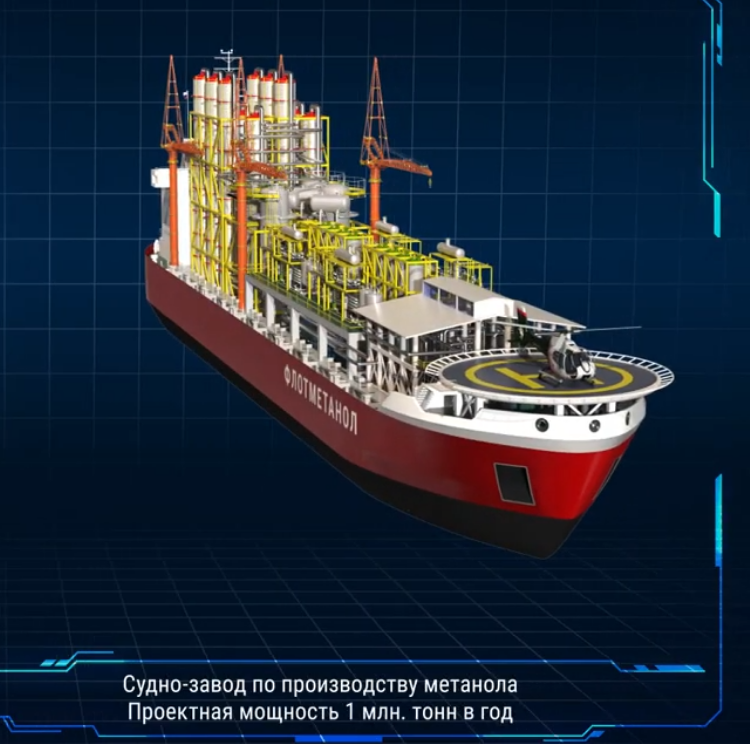
The Paris Climate Agreement foresees drastic reduction of coal, oil and natural gas use regardless of sanctions. Undoubtedly, global decarbonisation will continue which offers opportunities for Russia to develop gas-to-chemicals including production of methanol which is getting increasingly promising fuel, particularly for shipping.
The Paris Climate Agreement sets out a global framework to avoid dangerous climate change by limiting global warming to well below 2°C and pursuing efforts to limit it to 1.5°C throughout the 21st century. To reach the goal, global use of coal, oil and natural gas should be reduced considerably by 2050.
Global use of coal is expected to decrease by 85-95% by 2050 with observance of Paris Climate Agreement, Igor Bashmakov, Director of the Center for Efficient Use of Energy, lead author of the WG III of the Sixth Assessment Report of the Intergovernmental Panel on Climate Change, told journalists. “Up to 2024, coal can retain its market niche and even increase it amid the current situation in the global energy market but coal will not return, coal will become a history,” said Igor Bashmakov.
According to data shared by the expert, oil use is expected to decrease by 30-60% (depending on reaching the global temperature target of 1.5–° or 2–°).
Natural gas use may increase by 10% or decrease by 40% (in case of temperature growth by 2–°) or even by 60% (in case of temperature growth reduced to 1.5–°).
Therefore, regardless of sanctions, countersanction and embargo, Russia should be prepared for reduction of hydrocarbons use worldwide. One of the promising niches is the development of gas and gas-to-chemicals production facilities in port zones for more convenient logistics and exports as well as floating plants. Earlier, we wrote about one of such projects focused on polyethylene production in Ust-Luga.
Another promising segment of gas-to-chemicals is the production of methanol which can be used by industries and as a fuel for transport. Analysts expect the demand for methanol to grow 1.5 times by 2025 making 122 million tonnes per year while current production totals 60 million tonnes per year.
Russia annually produces about 4 million tonnes of methanol with exports accounting for less than 2 million tonnes. Russian leaders of methanol production are Metafrax, Simbetahim and Tomet.
Among the new projects we would like to distinguish the floating plant for methanol production being implemented by FlotMethanol on the Yamal. Floating plants can be also used for bunkering of ships since methanol is getting increasingly popular as a marine fuel.
Rushim is also building a complex for processing natural gas into methanol in the Nenets Autonomous Area (earlier known as Pechora LNG). The capacity of the plant which is to be completed by 2026 is estimated at 1.8 million tonnes of methanol per year. A terminal for the product shipment is to be built in Indiga. Obviously, exports to Europe are under a question now but exports to Asia should be observed.
Certain plans on construction of methanol production facilities in Russia were also announced by Eurochem, Safmar, Lukoil and even Hong-Kong based Sirius Holding.
Methanol for shipping

Methanol is among the most promising fuels for seaborne transport. It was in 2015 that Stena became the first owner of methanol-fuelled ferry.
Today, the main focus is on ‘green’ methanol produced from hydrogen by electrolysis and from CO2.
In March, A.P. Moller - Maersk (Maersk) entered strategic partnerships with six leading companies with the intent of sourcing at least 730,000 tonnes/year by end of 2025. The six companies are CIMC ENRIC, European Energy, Green Technology Bank, Orsted, Proman, and WasteFuel. With this production capacity, by the end of 2025 at the latest, Maersk will reach well beyond the green methanol needed for the first 12 green container vessels currently on order.
“To transition towards decarbonisation, we need a significant and timely acceleration in the production of green fuels. Green methanol is the only market-ready and scalable available solution today for shipping. Production must be increased through collaboration across the ecosystem and around the world,” Maersk said.
DNV has recently awarded an Approval in Principle (AiP) certificate to Dalian Shipbuilding Industry Company Limited (DSIC) and COSCO SHIPPING Energy Transportation Limited (CSET) for their new conceptual design of a methanol-fuelled very large crude carrier (VLCC). According to the statement, it is the first methanol-fuelled VLCC design. 10,000-cbm tanks will ensure cruising range of 23,000 nautical miles.
In January, the technology group Wärtsilä received its first order for newbuild methanol-fuelled engines. A new Offshore Wind Installation Vessel (WIV) will be powered by five Wärtsilä 32 engines capable of operating with methanol. The order also includes the methanol fuel supply system.
Although the stake of shipping is on ‘green’ methanol, part of the bunkering market in Russia could focus on methanol produced of natural gas since ‘green’ methanol is less available and more expensive today. ‘Green’ methanol production facilities can be built in the future .
More industry-related content is available on our social media pages: YouTube, Telegram, Twitter, Yandex Zen




